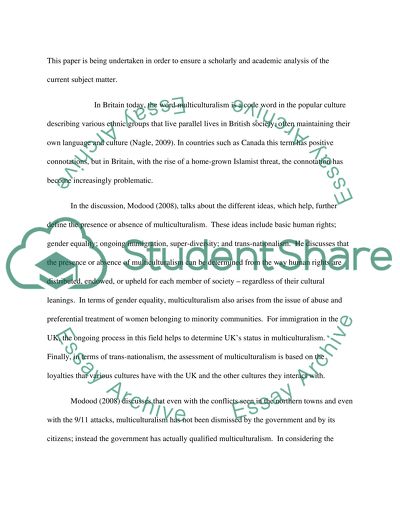Cite this document
(“Is Multiculturalism Dead or Alive in Contemporary UK Essay”, n.d.)
Retrieved from https://studentshare.org/sociology/1404913-is-multiculturalism-dead-or-alive-in-contemporary
Retrieved from https://studentshare.org/sociology/1404913-is-multiculturalism-dead-or-alive-in-contemporary
(Is Multiculturalism Dead or Alive in Contemporary UK Essay)
https://studentshare.org/sociology/1404913-is-multiculturalism-dead-or-alive-in-contemporary.
https://studentshare.org/sociology/1404913-is-multiculturalism-dead-or-alive-in-contemporary.
“Is Multiculturalism Dead or Alive in Contemporary UK Essay”, n.d. https://studentshare.org/sociology/1404913-is-multiculturalism-dead-or-alive-in-contemporary.


